Can Anyone Access Arrest Records?
Arrest records are generally considered public records and accessible to anyone except when prohibited by specific state laws (such as Alaska’s closed records) or when sealed by a court.
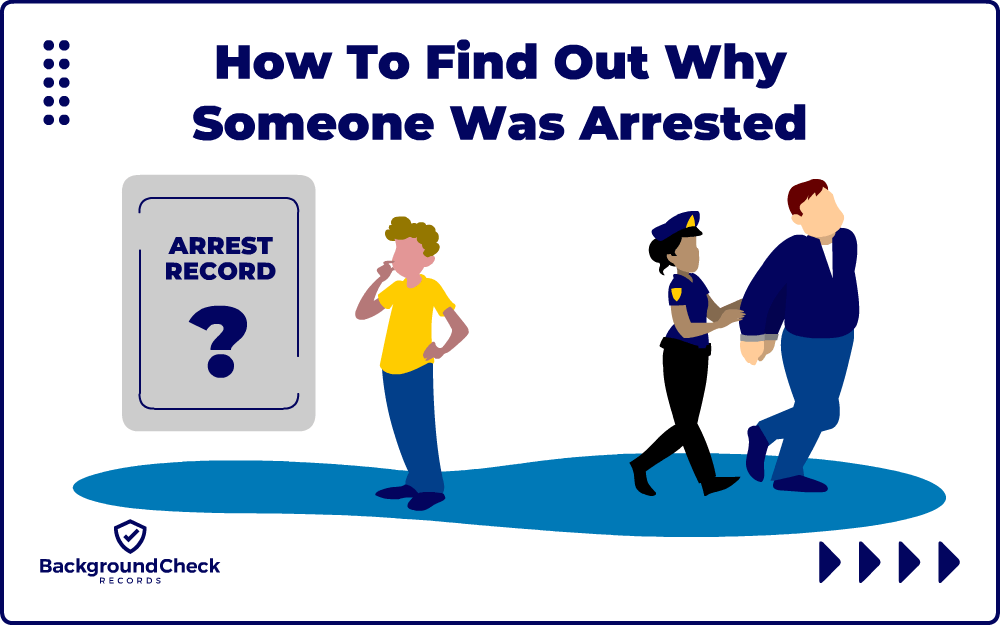
Table of Contents
When a friend, coworker, or acquaintance is taken into police custody, your initial search might be driven by curiosity or genuine concern about the circumstances surrounding their arrest.
No matter the case, there are multiple ways to locate arrest records, find out what charges landed that person in jail, and see everything they were charged for.
Fortunately, when investigating methods for finding recent arrests and the reasons for detainment, various resources are available depending on the jurisdiction. Access to these records depends on state laws, and not all agencies release inmate rosters or arrest reports. Discovering the reason for someone’s arrest can be straightforward.
It’s also important to find out if someone got arrested (whether by local, state, or federal authorities).
The quickest way to find out if someone was arrested yesterday or someone was arrested last night is to check with the local law enforcement agencies or detention facilities. A number of jails publish a daily roster or inmate list showing who is in custody, when they were taken into custody, the crime that person has been charged with, and, in some cases, bond information.
The information made public by the jail, police department, or county sheriff’s office may also include a mugshot of the alleged offender. What and how information is released is regulated by state laws.
Simply search the web for “[County Name] + Jail”, “[County Name] + Sheriff’s Office Inmate Finder”, or “[City Name] + Police Department Jail Roster”.
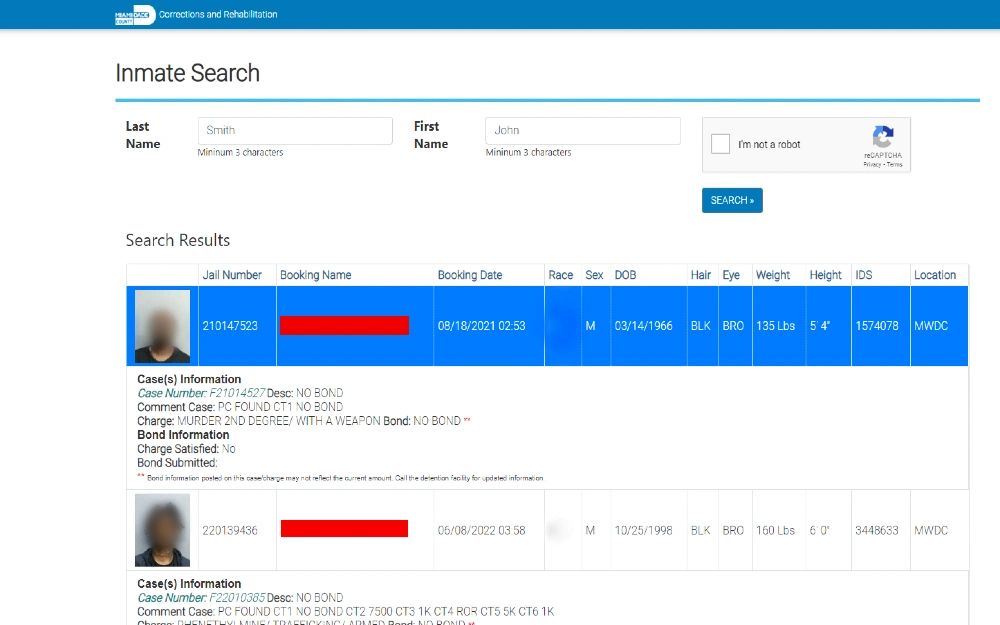
For example, seekers can search their favorite search engine for “Miami-Dade County Sheriff’s Office Inmate Finder” and follow the first .gov website which will take them to a search tool that allows inmates to be found using their first and last names. Similarly, individuals can contact local police departments or occasionally check with jails to determine if someone is in police custody.
Each state has its own laws and regulations regarding the release of arrest records. These laws outline what information can be made public and how it can be released. Individual jails also have their own policies regarding the release of inmate rosters or arrest reports.
The table below shows the laws in each state regarding the release of arrest records:
*Arrest records in these states have release restrictions.
**This state is not an open record state
Understanding the Public Access to Court Records system (PACER) is essential for uncovering the reasons behind arrests made by federal authorities, as overseen by the United States Marshals Service, which manages approximately 52,000 federal detainees daily.
PACER allows users to look up pending federal court cases. Access to the records carries a small fee; however, this fee can be waived if it is $30 or less in any given quarter.1
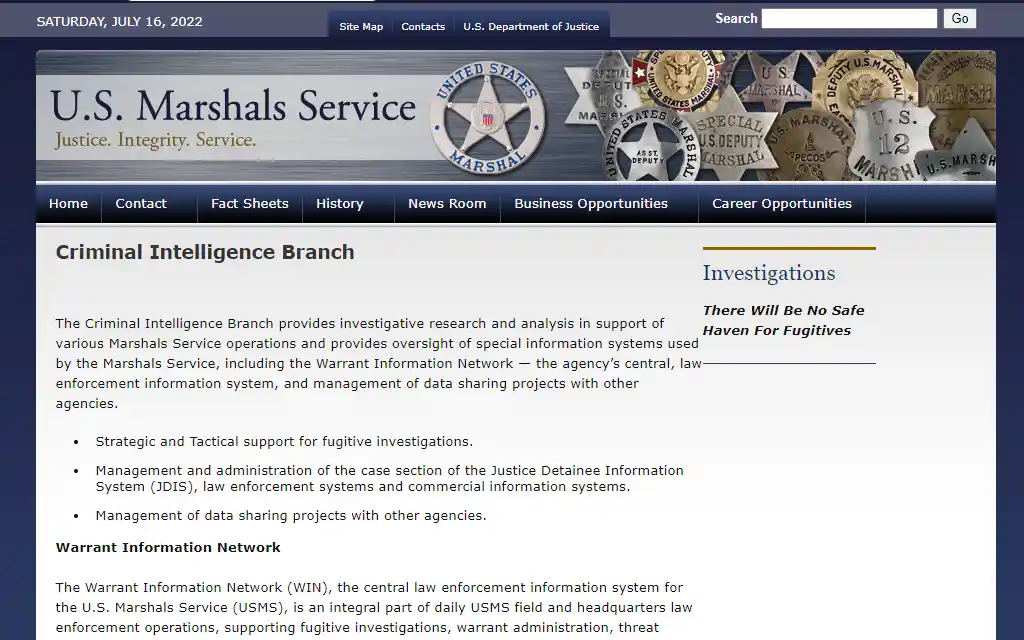
It’s possible to find out why someone was arrested using the methods above, but the search may reveal there is a summons or warrant for the person’s arrest instead. Both warrants and summons are attached to specific criminal charges, but there is a huge difference in how they impact the subject. Warrant searches offer another approach to determine recent arrests and can also provide details on the filing of criminal charges.
Arrest warrants issued by the local police department or sheriff’s office can reveal why the individual was arrested. Warrant searches are a great way to see if charges have been filed against someone.
Unless specifically excluded by state law, warrants are considered public records, and some police departments or sheriff’s offices will provide public search portals for individuals to see if a warrant has been issued. An example of a local warrant search is Miami Dade Police Department’s online portal.
Users can search by name and select specific warrant types.2 Some departments require individuals to call a central number to learn if an arrest warrant has been issued.
Other law enforcement agencies opt to not publish arrest warrants at all in order to maintain the integrity of active investigations. Whether or not to make local warrants available to the public depends on agency policy.
State law enforcement agencies also take individuals into custody pursuant to a warrant being issued and many states consider warrants to be public records to be made accessible to anyone unless specifically prohibited by law.
For example, Alaska is considered a closed record state; however, warrants can be published in the interest of public safety. Alaska State Troopers publish a list of active warrants in the state. This list includes what the subject is wanted for, or the reason for the arrest when the person is taken into custody.3
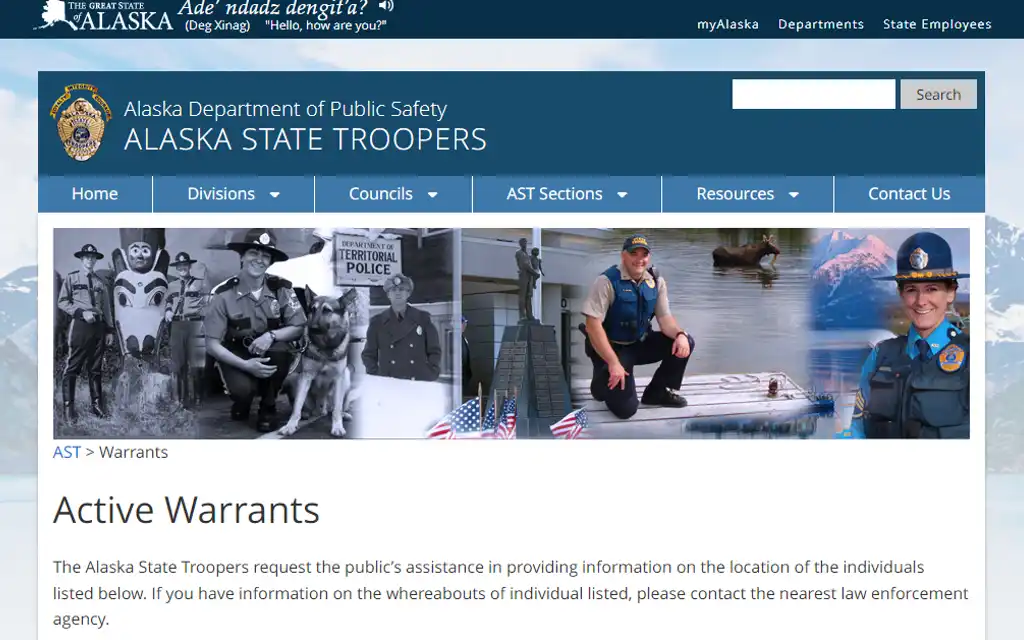
Federal arrest warrants are maintained by the United States Marshals Service through its Warrant Information System (WIN). WIN is a repository of all federal warrants; however, it is not considered a public access database. WIN access is strictly limited to officers or agents with an official need to know to execute the duties of their office.4
Sometimes a warrant will be issued and an arrest made based on the warrant attached to the criminal charge. Other situations result in a criminal summons being issued in lieu of a warrant.
A criminal summons is usually issued in cases where the crime is minor or there is very little risk of flight. Summons do not automatically result in an arrest. Summons are ordered to appear in court. Failure to appear in court on a summons will result in the issuance of an arrest warrant.
Jobs, rental applications, licensure, and other important activities can require a background check, and arrest records can and do show up on some of these screenings. Whether or not the arrest record appears depends on the state and the nature of the search.
It is possible a soon-to-be spouse mentions they were previously arrested, but never explains why. A premarital background check might help uncover the reason.
There are several types of background checks, some more in-depth than others, and the information searched depends on why it is being requested. Below is an outline of the most common types of criminal record checks and whether or not they include arrest records.
| Type Check | Why Conducted | Can Arrest Records Appear on these checks |
| Employment Purposes | One of the most common types of background checks is the employment background check. These can be conducted as a pre-screening tool, or they can be conducted after employment on a routine basis. | Arrest records can appear on these checks; however, there are strict rules regulating the use of arrest records in employment decisions. |
| Tenant Screening | Another common background check is tenant screening. | While criminal records can be part of a tenant screening, these records are usually restricted to convictions and not arrests that have yet to be adjudicated or arrests and charges that resulted in dismissal or not guilty verdicts. |
| Personal Background Checks | These checks are usually run by individuals wanting more information on a friend, family member, love interest or themselves. | These checks can show arrest records in addition to a host of other data. Information on these checks may sometimes be outdated or incorrect depending on the search method. |
Many states have enacted laws regulating how arrest records can be used when they appear on background checks. Called “Ban the Box” laws, these states prohibit the use of arrest records in and of themselves as grounds to deny employment. Additionally, inquiries about arrest records must be delayed in most cases until an offer of employment has been made.
These laws help individuals who have been arrested or convicted of offenses have a fair chance at employment. Gainful employment is a huge factor in preventing reoffending. The following states do not have “Ban the Box” laws.
The United States Government code regulating the use of arrest records in decision-making is called the Fair Chance to Compete for Jobs Act.5 The Equal Employment Opportunity Commission is in charge of overseeing and enforcing federal employment laws to prevent discrimination in the workplace. The EEOC guidance outlines the prohibition of the use of arrest records as a means to deny employment.6
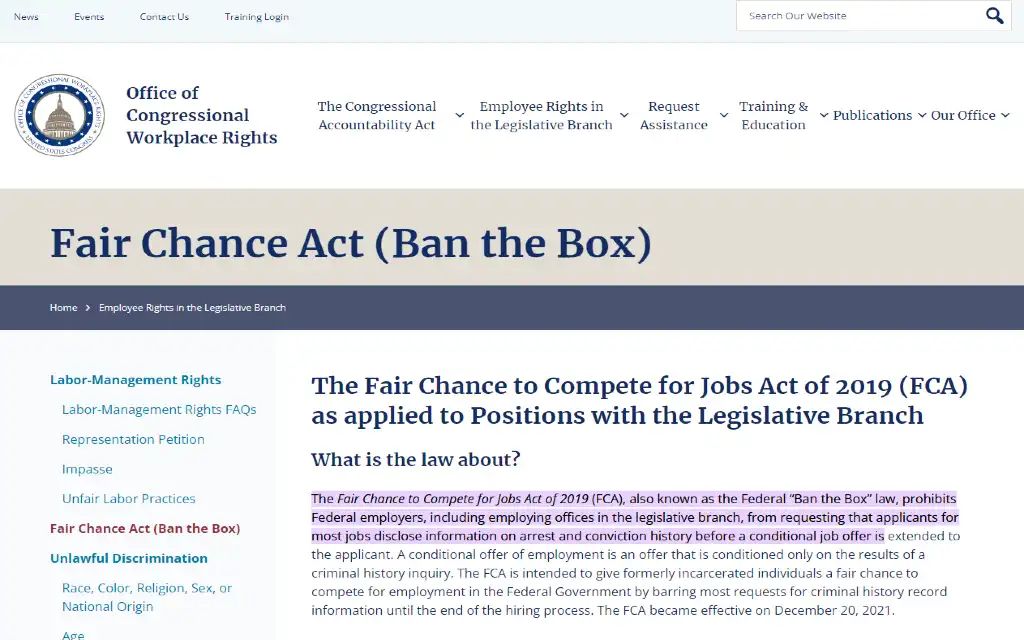
But if you’re wondering whether or not dropped charges show up on a background check, the Fair Credit Reporting Act (FCRA) prohibits background check firms from reporting any arrests or charges that were dropped or dismissed or resulted in a non-conviction and are more than seven years old.7
Inmate records are not the same as arrest records. Arrest records are documentation an individual was taken into law enforcement custody on criminal charges. Inmate records are documentation of a person who was convicted of a crime and placed in the custody of the state department of corrections or the Federal Bureau of Prisons.
The criminal act outlined in the conviction may be vastly different from the charge used to seek an arrest warrant. Initial charges attached to the arrest can be reduced to a lesser charge due to plea bargains or other court actions.
Arrest records are different from department of corrections records, but DOC records can still reveal why someone was arrested in the past. The biggest difference between state department of corrections (DOC) records and arrest records is whether or not there is a conviction. An arrest record does not necessarily mean a person was convicted of a crime. State DOC records reflect what an individual was convicted of following a trial or pursuant to a plea. When state records show what a person is incarcerated for, it may not be the same charge that was entered on the arrest report.
Discovering the circumstances surrounding a person’s arrest can involve contacting your local police or sheriff’s department directly, or it may require assistance from third-party websites or professionals such as attorneys or bail bondsmen. The initial step involves understanding the process of uncovering the details of the arrest and proceeding accordingly.
Arrest records are generally considered public records and accessible to anyone except when prohibited by specific state laws (such as Alaska’s closed records) or when sealed by a court.
The best way to find arrest records quickly is the use of a search website; however, these can cost a fee for the information. Free searches should start at the local level with the police or sheriff’s department.
Finding out if someone has been charged with a crime but not arrested can be determined by reaching out to local law enforcement, looking online for warrants (where available), and requesting a criminal background check on someone.
1 PACER. (n.d.). Public Access to Court Electronic Records | PACER: Federal Court Records. Retrieved July 16, 2022, from <https://pacer.uscourts.gov/>
2 MDPD Crime Information Center. (n.d.). MDPD Crime Information Center. Retrieved July 16, 2022, from <http://warrants.mdpd.com/SearchWarrants.aspx>
3 Alaska Warrants. (n.d.). AST Active Warrants for A Detachment. Retrieved July 16, 2022, from <https://dps.alaska.gov/getmedia/907205fc-e3f8-4cec-960a-af295df8eaec/AST-Active-Warrants.pdf>
4 US Marshals Service, Freedom of Information Act Information, Warrant Information System. (n.d.). U.S. Marshals. Retrieved July 16, 2022, from <https://www.usmarshals.gov/readingroom/warran.html>
5 Fair Chance Act (Ban the Box) – OCWR. (2021, December 20). Office of Congressional Workplace Rights. Retrieved July 16, 2022, from <https://www.ocwr.gov/employee-rights-legislative-branch/ban-the-box/>
6 EEOC. (n.d.). US Equal Employment Opportunity Commission: Home. Retrieved July 16, 2022, from <https://www.eeoc.gov/>
7 Fair Credit Reporting Act. (n.d.). Federal Trade Commission. Retrieved July 16, 2022, from <https://www.ftc.gov/legal-library/browse/statutes/fair-credit-reporting-act>
We use cookies to ensure that we give you the best experience on our website. If you continue to use this site we will assume that you are happy with it.